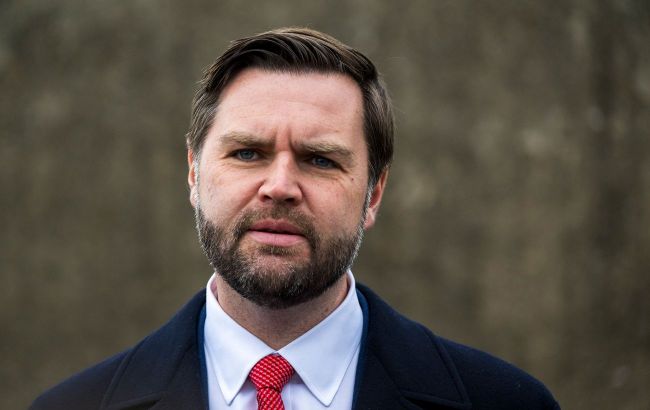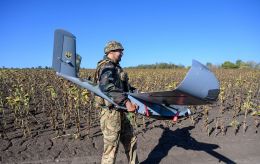Vance defends Witkoff following media reports about his meeting with Putin
 Photo: US Vice President J.D. Vance (Getty Images)
Photo: US Vice President J.D. Vance (Getty Images)
US Vice President J.D. Vance called a media report on the mistakes of Steve Witkoff, the president’s special representative, an "operation of foreign influence." He also described the authors of the report and the experts cited as "supporters of the deep state,"
Vance stated that the media report was allegedly an act of "journalistic malpractice." He also described it as an attempt at "foreign influence" aimed at "hurting" the US administration. Witkoff, he added, is supposedly "one of our most effective members."
According to Vance, the report targeting Witkoff was allegedly carried out by supporters of the "deep state" (a conspiracy theory claiming that unelected officials and other influential groups secretly manipulate state policy in pursuit of their own goals - ed.).
Vance also attacked the author of the report on Witkoff, accusing her of omitting certain information from the article while relying on "anonymous sources." He suggested that the author might have acted on assignment, or perhaps simply did not realize that she was being used.
"They have an agenda to blow up the president's efforts to make peace," he said.
Vance called the fact that the report appeared in the media at all "disgraceful," once again portraying Witkoff in a positive light — describing him as "an invaluable member of our team."
"He (Witkoff - ed.) did not mislead anyone on what the Russians told him and what the Russians conceded. (Trust me, I've seen the intel.) The fruits of his negotiations are that we have narrowed the list of open issues in the Russia-Ukraine war to a set of clearly defined issues--specifically, security guarantees and territorial concessions," Vance wrote.
Witkoff and his confusion
On August 28, media reports emerged that US President Donald Trump’s special envoy, Stephen Witkoff, had grossly violated diplomatic protocol during a meeting with Russian President Vladimir Putin. This later led to confusion regarding "Putin’s conditions" for peace in Ukraine.
Back on August 7, Witkoff initially stated that Russia was ready to make a number of significant concessions, including withdrawing troops from Ukraine’s Zaporizhzhia and Kherson regions. However, he later began to deny this.
Meanwhile, Western media, citing their own sources, reported that Putin had not abandoned his intention to fully control Donetsk, Luhansk, Zaporizhzhia, and Kherson regions. Witkoff, they said, had misunderstood Putin’s statements and took them as concessions.

